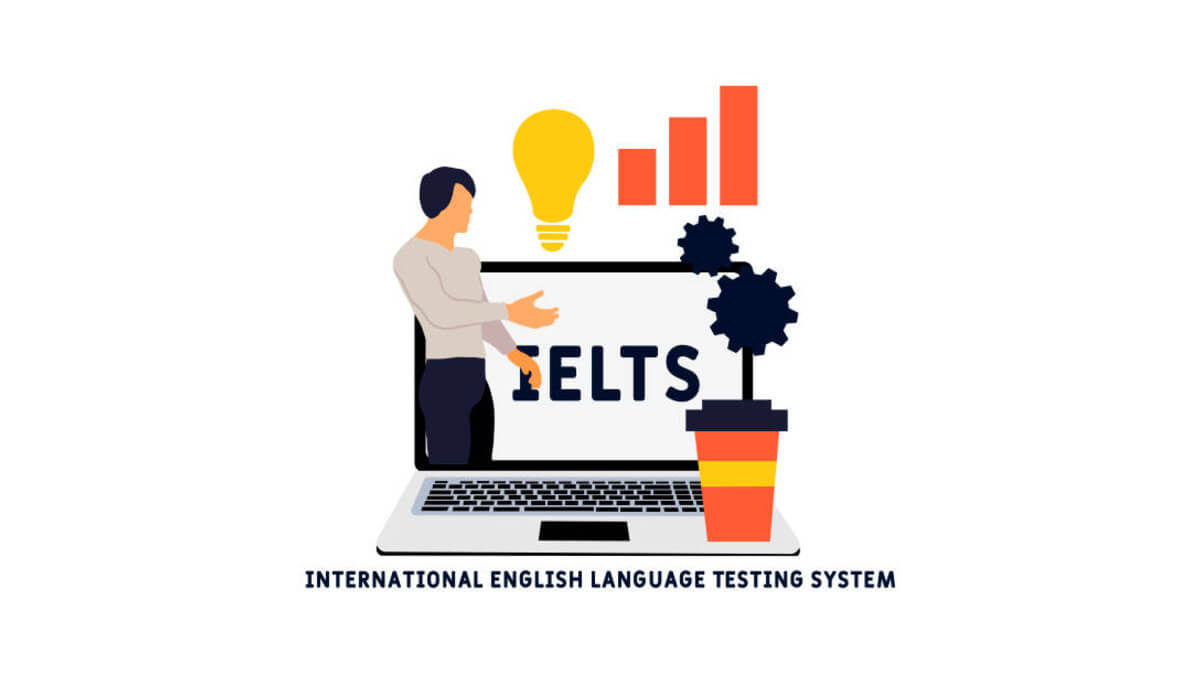How To Ace IELTS Listening Test
One of the four components of the International English Language Testing System (IELTS) exam is the listening test. It is intended to assess the candidates in comprehending spoken English in a variety of settings, including casual chats, lectures, and discussions.
For many test takers, the hearing test—which is a major component of the IELTS exam—can be a difficult undertaking. Yet, passing the IELTS listening test may be readily accomplished with the proper preparation and tactics.
I’ll provide you with some helpful hints, methods, and resources in this blog article so you may sharpen your listening abilities and do well on the IELTS listening test.
Whether you are a first-time test-taker or have taken the test multiple times, this post will give you the guidance you need to succeed in the IELTS listening test. So, let’s get started.
Advertisement
Also, check out How To Ace IELTS Speaking Test.
Format of IELTS Listening Test
In IELTS, the listening test has two categories. The Academic and the General Listening test. There are four sections in the test and two tasks in each category. There are 10 questions each for a section which makes total questions to be 40 questions.
You will need to listen to recordings to answer the questions. The examiner provides you with earphones for the test. The alternative is the use of speakers.
You need to pay attention when the examiner plays the recording. You get to hear the recording once. Then, You get pauses after each section to review your answers.
Advertisement
The grading system for the listening test is a 0-9 scale. The highest band score for the test is 9, while the lowest score is 0. The test contains simple and complex questions. The progression is from simple to complex. In addition, the more correct answers, the higher your band score.
| Correct Answers | Band Score |
| 16 | 5 |
| 23 | 6 |
| 30 | 7 |
| 35 | 8 |
Furthermore, the duration for completing the test is 40 minutes. You have 30 minutes to listen, read, and answer the questions. You transfer your answers to an answer booklet within 10 minutes. Contrasting, in the computer-based test, 2 minutes is the allocated time.
Four Sections of the IELTS Listening Tests
Section 1
A conversation between two speakers in a social context. For example, a random discussion about your personal experiences.
Section 2
A monologue on a social or academic topic. For example, an engaging topic about a field or issue.
Section 3
A conversation between up to four speakers in an academic context. For example, a group discussion about a research project or a seminar about a topic related to a university course.
Section 4
A monologue on an academic subject. For example, a lecture on a topic from a university course or a talk on an aspect of science or technology.
Question Types
You need to understand the format of the questions and question types asked in the IELTS test. Consequently, you will find it easy to answer the given questions.
Familiarize yourself with formats of questions through regular practice.
Some common question formats include:
- Multiple Choice Questions
- Completion of the Given Table
- Mapping
- Flowchart Completion
- Diagram Labelling
- Completing Sentence
- Summary Completion
- Note Completion
- Form Completion
Also, check out Tips to Pass IELTS Writing Test.
Essential Tips on how to pass the IELTS Listening Test Successfully
Improve your all round listening skills
This should be one of your priorities when you when preparing for the exam. You need to practice and understand what it takes to listen actively. Get used to listening to discussions once in preparation for the test.
In addition, familiarize yourself with British accents and the scope of the language.
Do the following to improve your listening in preparation for the test.
- Listen to authentic English material, news broadcasts, podcasts, movies, TV shows, music, and radio programs.
- Practice active listening focusing on main ideas, details, and supporting information.
- Practice taking notes while listening.
- Expose yourself to a wide range of English accents through videos, audio recordings, or language-learning apps.
- Practice with IELTS listening exercises. There are many online resources available. Click here to do some IELTS Listening exercises.
- Practice with a language partner or tutor.
Manage your time
Every aspect of the IELTS test will test your capacity to manage your time effectively. Consequently, it is essential to practice time management skills often before taking the exam. Also, during the test ensures to use those skills to the best of your ability.
When taking the IELTS Listening test, ensure to do the following:
- Be time conscious and take note of the allocated time
- Preview the questions before listening to recordings to get an overview of what the question entails and how to note the crucial parts in the recordings
- Skim the questions and answer options in preparation for listening to the recordings
- Be mentally focused when listening to the recordings to avoid unnecessary waste of time.
- Use abbreviations, symbols, and other note-taking techniques best for you to take notes faster and more efficiently.
- Leave time to review your answers for any errors.
- Do not stay stuck on one question because the more you waste your time the lesser the chances to answer more questions.
Read and Understand the Instructions and Questions Effectively
One of the valuable keys to passing a test is the ability to carefully read the questions asked and given instructions. Doing this helps to understand the required steps.
You will be doing yourself great benefits when you understand this and practice it. Do not be in rush to write your answers as you may miss out on some of the vital information for you to answer the question.
Do the following to read questions and instructions effectively:
- Pay attention to the wording and structure of the question or instruction as you read carefully Identify keywords to get a clue about the requirements
- Search for specific details as questions may require you to answer the questions in a particular manner.
- Check for formatting requirements such as word limits before answering questions
- Ask for clarification if you are unsure about the given instructions or questions.
Build an arsenal of vocabulary
IELTS will test your proficiency in the use of the English Language. Therefore, the more words, synonyms, and antonyms you know, the more the level of your familiarization with the language. You need vocabulary for each of the sections of your IELTS test.
To improve your vocabulary for the listening test, do the following:
- Read extensively because the more you read, the more your stock of vocabulary increases as you come across new words.
- Make the dictionary your best friend. Ensure that you use it when you come across a new word to get its meaning, pronunciation, and usage.
- Learn prefixes and suffixes. Deciphering unfamiliar words can be easier if you understand common prefixes and suffixes.
- Playing word games can help you learn new words and reinforce your existing vocabulary.
- Use flashcards. Creating flashcards with new words and their definitions for memorization. Watch and listen to English media
- Use new words in conversation and relevant context occasionally.
Be consistent with your writing format and write legibly
There is no law limiting the format of writing you want to use. You can use capital letters or small letters. However, you need to be consistent with the format you choose and write legibly.
Transfer your answers effectively
The last 10 minutes to the end of the test is the most crucial time. At this moment, you transfer your answers to an answer booklet. Transfer the answers accordingly and make sure you do that legibly and accurately.
Do not assume answers while you listen.
Conclusion
Acing the IELTS Listening Test requires preparation, practice, and effective time management. To succeed in the test, it is important to understand the format of the test, improve your vocabulary and listening skills, take notes, manage your time wisely, follow instructions carefully, stay focused, and practice as much as possible.
By following these tips, you can boost your confidence and increase your chances of success on the IELTS Listening Test. With determination and practice, you can achieve the results you need to achieve your academic or professional goals.
Before you go, read about IELTS Scoring System.






